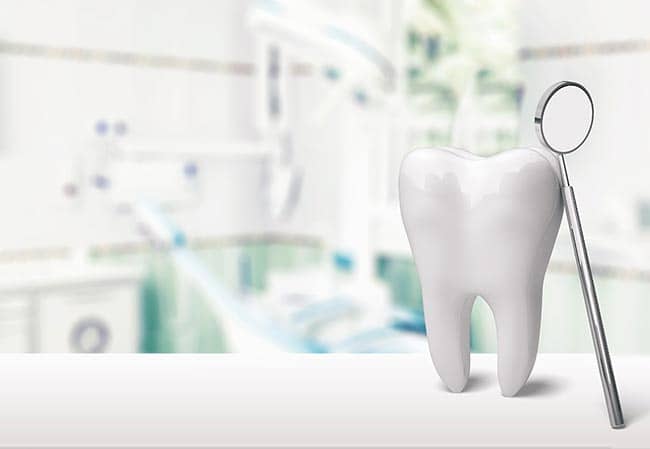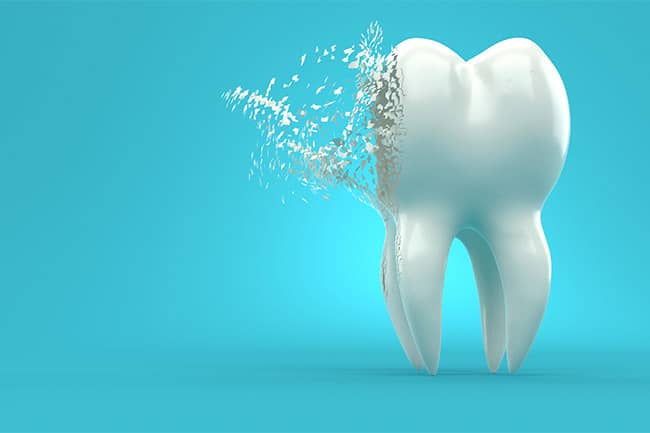The World Health Report 2003 emphasises the interrelationship between oral health and our general health, wellbeing and quality of life. In its 2011 report, the Dental Health Services Victoria (DHSV) outlined further research and emerging evidence linking poor oral health to chronic diseases such as cardiovascular disease, stroke, diabetes, respiratory disease, dementia and kidney disease.
Not only have these problems been linked with poor oral health, research has also suggested that the body’s response to other unrelated infections may be impaired when suffering from untreated gum disease.
The two most common oral health problems are tooth decay and periodontal disease or what we generally know as gum disease. Gum disease is a bacterial infection that affects the gums, connective tissue and bones surrounding the tooth. It can range from a mild gum irritation (gingivitis) to a more severe gum infection (periodontitis). Gum disease can cause tooth loss and puts us at a higher risk of developing other health problems.
What causes gum infection and how to know if you have it?
When we eat or drink, food residue gets stuck between our teeth. Bacteria that is present in our mouth reacts with sugar from these food particles, in turn creating acid that forms into plaque. If we don’t regularly and properly brush our teeth, plaque hardens over time to become tartar, which is not easy to remove and traps harmful bacteria between teeth and gum lines causing gum infection.
Gingivitis is a mild form of gum disease that causes irritation and inflammation of the gum. When left untreated, gingivitis can develop into severe gum infection or periodontitis. This form of gum disease can actually destroy the bone structure that holds your teeth, causing tooth loss. Here are some symptoms of periodontitis to look out for:
- swollen and tender gums
- red gums
- gums that easily bleed when you brush or floss
- chronic bad breath
- pain when chewing
- loose teeth
- pus between your teeth and gums
- receding gums
- “pockets” or new spaces between your teeth
- misalignment of your teeth when you bite

How to treat gum infection
If you notice signs of periodontitis, make an appointment with your dentist and oral health therapist as soon as you can. Gum infection treatment depends on the diagnosis and severity of infection. This includes:
- Deep dental cleaning – this procedure involves removal of plaque and tartar build-up surrounding the roots of your teeth and gum lines. This non-invasive treatment is also called “scaling and root planing.”
- Antibiotics – your dentist may prescribe oral antibiotics to fight infection.
- Surgical treatment – in most severe cases that involve gum tissue and bone loss, a surgical procedure may be necessary. This includes:
- gingival flap surgery – lifting of gum tissue to access the root of your tooth for a more effective deep dental cleaning;
- soft tissue grafting – reinforcing damaged soft tissue to reduce further receding gum line;
- bone grafting – transplanting bone tissue to prevent tooth loss; and
- guided tissue regeneration (GTR) – placing “artificial membranes” between the bone and gum to provide damaged bone space to heal and regenerate itself.
How to prevent gum infection
Treatment of gum infection can be painful and costly. Prevention is the best cure and it starts with practising good oral hygiene! Here are some ways to help you keep your teeth and gums healthy and infection-free:
- Regularly brush, floss and clean in between teeth – this can’t be emphasised enough. Brushing your teeth at least twice a day using toothpaste with fluoride and flossing in between will keep tartar build-up between your teeth and gums. Likewise, make sure that you do so properly!
- Visit your oral health therapist regularly – regular check-up and cleaning for adults is recommended to detect early signs of gingivitis and periodontitis.
- Avoid having too much sugar in your diet – there’s a reason why sweets and even excess fruit consumption are implicated in tooth decay. Sugar in food turns bacteria into acids that cause decay, which could lead to gum infection.
- Don’t smoke – smoking has been associated to higher risk of gum disease.
- Drink fluoridated tap water – studies have shown the effectiveness of fluoride in strengthening teeth against plaque acid attacks that cause tooth decay.
Plan a visit to your Oral Health Therapist
Make visiting your oral health therapist a habit so your teeth and gums stay healthy. If you notice any symptoms of gum infection, book an appointment with your dentist and oral health therapist so you can nip it in bud before if gets worse!




